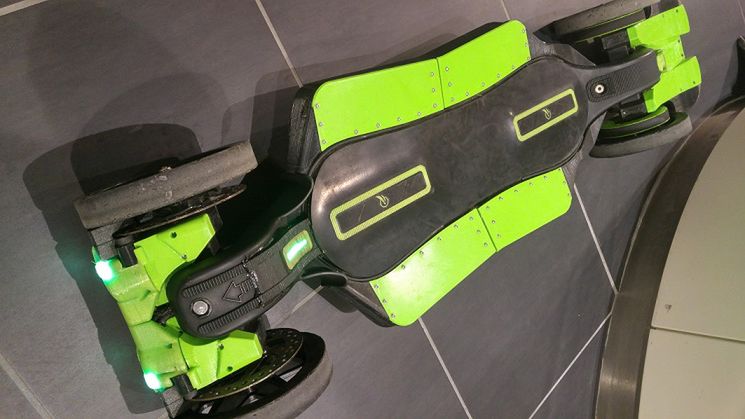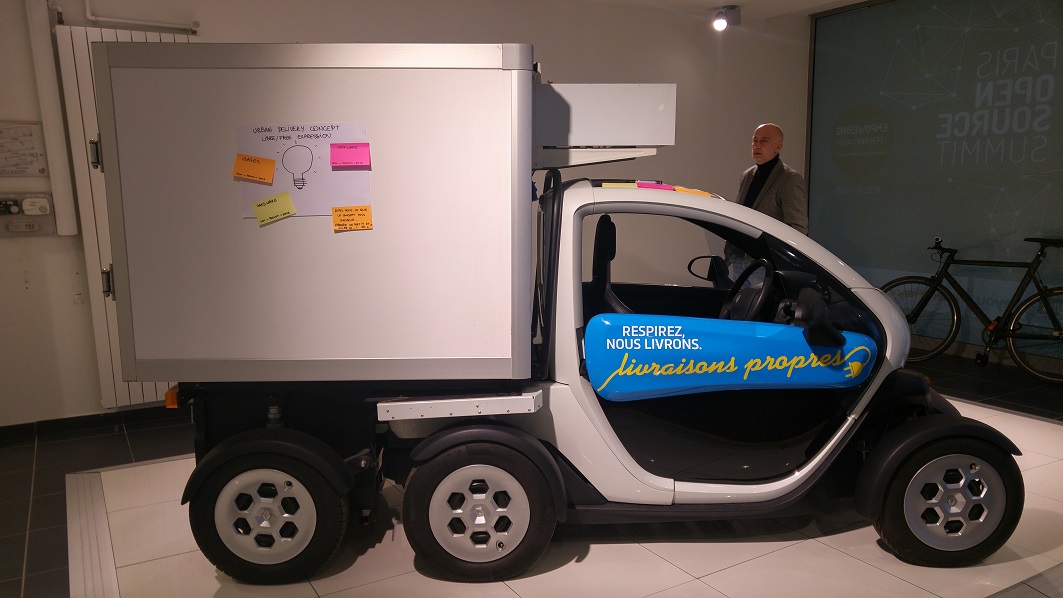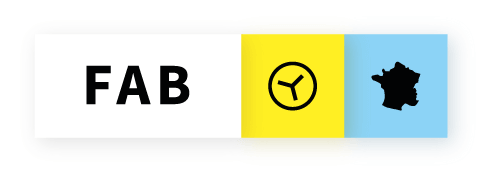Communauté de l'Open HardWare/Atelier N°1
Description en une ligne : Communauté de l'Open HardWare/Atelier N°1
Description : Why Open Hardware in Mobility ?
- go faster,
- share resources and development, mutualise
- simplify co-creation without heavy contract,
- increase your ecosystem,
- reinvent your business model by centering on your own added value
- create standard, increase reutilisation and business
Example with Faraday Motion Open Source Hyperboard :
Evénement lié : Inscription Atelier N°1 Open Hardware - Nov 2016
Organisations impliquées : RENAULT, Faraday Motion, POC21
Thème : Voiture Connectée, Données ouvertes, Open HardWare, Ecoles et Etudiants
Animateur Atelier : Gabriel Plassat
Défi lié à l'Atelier : Abaisser les barrières pour innover sur le véhicule, Contribuer à l'Open Challenge, Améliorer les solutions et développer de nouvelles solutions de mobilités pour tous
Communauté(s) d'intérêt impliquée(s) : Communauté Voiture Connectée, Communauté de l'Open Hardware
Actions décidées par les participants : Créer une nouvelle communauté, Identifier ou Produire un Commun utile à la communauté
Autres informations :
Projects Presentations[modifier | modifier le wikicode]
- Introduction of Paris Open Source Summit
- Feed Back from POC21 : Benjamin Tincq, http://www.poc21.cc/12-projects/ :
- Documentation : full report available, movie
- Identification common problems that many projects have to tackled together : for example transform AC/DC in open hardware that can served several projects,
- Strong misunderstanding around licenses : design, process to build, using CC and CERN for protection,
- Difference between makers and entrepreneurs: after the camp few people really know what to do.
- Huge amount of interest from developing countries: links to create with CODATU, Mobilise your cities,
- Business models: economic models with blockchain / tocken can be useful for open source. Tockens can be used for growing a network, to create links community, “tockenising contributions”.
- Projects presentations (15' / project) : general overview, documentations, lessons learns, next step
- [presentation] Ampool (http://ampool.fr ) Vehicle Open Source first based on OSV then evolution, Mobility platform, Living Lab in Aquitaine Region
- specifications available,
- vehicle not homologated,
- Difficulties : better describe at the beginning the objectives and benefits for all partners,
- next step : starting with an homologated vehicle,
- [presentation] Welo.io (http://www.welo.io ) : open source bike sharing solution
- Electronic, softwares : Open source,
- API private and public
- POC done,
- next step : looking for 100 bikes.
- Difficulties : skills acquisition of electronic, technical integration and urban integration.
- [presentation] Local Motors (https://localmotors.com/localmotors/the-awesome-system-driverless-mobility-on-demand/activity/ ) : in Berlin Co-creation for the design + micro-manufacturing for the production,
- 51000 members,
- Based on challenges for co-creation : different competitions
- Airbus cargo drone production in One years, Rally fighter: 18 months – military vehicle, proto in 5 months,
- 3D printed car with challenge on-line in 20 hours for chassis printing and machining, commercialization in USA end of 2016 – homologation on-going,
- Berlin in 2015 : challenge on-line : collective, on-demand autonomous shuttle, currently rented by DB and in demo in Washington, partly 3D printed, Watson IBM inside.
- Rewarding for the contributions => challenge reward with prices, day to day creation work rewarded function of the engagement + rights given to LM and royalties gave back,
- [presentation] Faraday Motion (http://faradaymotion.com ), with Sune Pedersen, see post on FabMob blog about this project
- Light EV, hyperboard, used as a MVP to learn how to design and deploy EV
- hosted in Startupbootcamp Berlin
- Arduino, Open hardware, motor controller open source
- Starting from Makers but now looking for industrialisation + €,
- Everything is available on line : can be download and 3D printed
- Small Communauty with first consumers
- Faraday détaille les actions en cours pour avoir les inputs de la communauté
- Business models : making money with hardware for the moment
- Next steps : Visions : EV connected to produce datas,
- Benefits of open source : appropriation by consumers, making the product via maker is a good way to learn through/from them, hiring process is different with collaboration before hiring, no marketing, extensible (soft, hard), open soft/hardware approach, license : CC and GPL
- [presentation] Logistic Open Source (based on Renault Twizy) :
- Develop and test new logistic chain with a twizy redesign for plugging a box
- Connexion with existing startups working on delivery chain, on open hardware, on standard box for logistic, mutualisation with others cars for the interfaces between vehicle and box
- [presentation] POM project : Hardware platform of Twizy open for ecosystem innovations : See Twizy Open Source - P.O.M.
- Target : opening design of future vehicles,
- Opening a technical minimal platform for co-development based on Twizy:
- Several circles of contributors :
- University, schools, startup, makers,
- ex-suppliers becoming partners, cities,
- industrial,
- Start for problem to solve then Transform the vehicle to invent new usages
- Needs expressed : feedbacks from ecosystem to Renault design,
- Asset proposed by Renault :
- Hardware open with all specs,
- Production of POM as a derivative in the existing assembly line
- Propositions expressed :
- Gael Musquet want one to hack it and made a military robot
- Build National or European Challenge based on Twizy Hardware starting with Urban problems to solve : FabMob Open Challenge
- [presentation] Thomas Cocirta : http://mobotiq.com Electric Pod, 3 wheels, driverless, peer to peer sharing, urban (1m large), tilting vehicle, easy to maintain and wash
- Romania and France,
- 3 wheels platform homologated / then everyone can plug cabin on the top /interfaces can be open source…
- Manufacturing : partially 3D printing
- Capacity to move in train form
- Battery extractable
- Project : start 3 years ago, research platform funded by EC (autonomous, tilting) : 2 videos
- Open hardware : manufacturing, mobility services, employment are blockchained,
- Thinking autonomy with blockchain : be rewarded for each contribution, ethereum supported
- Developing a tool for collaboration between engineers for collaborative projects : can be tested in FabMob
- Similar to European project : ESPRIT lead by Valery Cervantes CEA
- Ideas :
- Identify components that can be mutualized between projects : controller, electric motor, gyroscop,
- Tool for better collaborating (video) using different open source software
- Invent multiples tockens rewarding solutions compatible
- Mob-ion : E-Scooter for delivery with on-board intelligence with Christian Bruere and Fabien
- Just starting, factory in Poitiers for producing e-scooter,
- exFounder of Alloresto, scooter will be buy and tested for Alloresto,
- Connectivity for better management of delivery,
- Hardware and software on development, Open source
- European Project : http://opensourcedesign.cc/wiki/index.php/List_of_open_source_hardware_product with an interesting Open O Meter to quantify openess of each project
- [presentation] Ampool (http://ampool.fr ) Vehicle Open Source first based on OSV then evolution, Mobility platform, Living Lab in Aquitaine Region
- Not present :
- France Craft (http://www.francecraft.fr/ ) linked with Garage Libre initiative,
- La Fonderie Car (Gael Musquet),
- Programmable RF hacking tool controlled by your smartphone http://gollumrf.com/ : existing technology, fremium offer
- Open Source Vehicle (informations for POSS - Novembre 2016) : https://vimeo.com/191904299 interventions about the next milestones of OSVehicle.
Example with Twizy modified and open for logistic project :
Open Source Projects Synergies[modifier | modifier le wikicode]
- Identification of Best practises : licenses, how to share, how to build community, Connexion with http://www.meetup.com/fr-FR/OpenHardw-re-Paris/
- Open questions :
- do we need to federate theses projects with an open hardware database ? with regular meetings ?
- how to share at european level ? how to build european community ? example of : http://mangoh.io/
- how to deliver products ?
- Identification of common needs => call and financial support
- How can we connect open hardware and others stakeholders :
- CNPA (garage, car rental, ...)
- Schools for education,
- OEM, suppliers for open innovation,
- “Open” Cities as a partner to help implementation,
Key Ideas[modifier | modifier le wikicode]
- Federate all projects and identify synergies, common needs between projects,
- Evangelization & communication kits for all stakeholders : city,industrial (manufacturers, suppliers, garage, mobility services like rental …),schools, labs, makers, …with examples, Q/A
- Strategy kit for open source project : license process choice, how to start a community, how to leverage open assets, how to design an open source strategy, how to start an open source project with different partners ?
- Identify standard open source components useful for several projects, pre-validated : controller, electric motor, …
- Community : Improve and learn co-creation, collaboration, community empowerment :
- Rewards, tocken, skills description to improve engagement
- (open) Tools for on-line contribution
- Learn and share around business models :
- from makers to entrepreneurs
- developing countries markets,
- licenses,
- Start 1st open challenge with open hardware assets : FabMob Open Challenge


 Français
Français English
English Italiano
Italiano